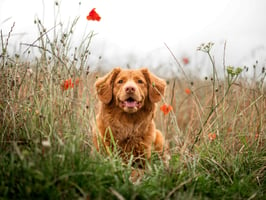Training your dog to bring you items on command can be a great way to build your connection with...
Strategies to Prevent Puppy Biting Behavior
Puppy biting can be a difficult behaviour to manage and can be a source of frustration for pet owners. However, with patience and consistency, it is possible to teach your puppy to stop biting. In this article, we will discuss practical tips on how to stop your puppy from biting, as well as the importance of providing your puppy with plenty of exercise and mental stimulation.
Why Do Puppies Bite?
Biting is a normal behaviour for puppies, as they are exploring their environment and learning about the world. Puppies tend to bite as a way to communicate, explore and play. This behaviour is usually seen when puppies are between 8 and 16 weeks old, and is often referred to as ‘teething’. It is important to remember that puppy biting is a normal behaviour, and should not be seen as a sign of aggression or misbehaviour.
It is important to remember that puppies do not understand the concept of biting too hard, and it is up to their owners to teach them the correct way to interact with other people and animals. It is important to start training your puppy from an early age to ensure that they learn how to interact with others in an appropriate manner.
How to Stop Your Puppy from Biting
The best way to stop your puppy from biting is to provide them with plenty of exercise and mental stimulation. Puppies need plenty of physical and mental exercise to stay healthy and happy. Taking your puppy for regular walks and playing with them can help to keep them mentally and physically stimulated. This will help to reduce their energy levels, and they are less likely to bite as a result.
It is also important to provide your puppy with plenty of chew toys. Chew toys are a great way to redirect your puppy’s biting behaviour away from people and onto something appropriate. Make sure that you provide your puppy with plenty of different chew toys, so that they do not become bored with the same toys. You should also ensure that you replace the toys regularly to ensure that your puppy does not become bored.
It is also important to provide your puppy with plenty of positive reinforcement and rewards when they do not bite. You should reward your puppy when they interact with people and animals in a gentle and appropriate manner. This will help to reinforce the behaviour that you want them to exhibit.
When your puppy does bite, it is important to remain calm and not to scold them. Instead, redirect their attention onto something else, such as a toy or chew bone. This will help to teach your puppy that biting is not an appropriate behaviour. If your puppy continues to bite, you may need to provide them with a time out, or remove them from the situation until they have calmed down.
Finally, it is important to remember that puppy biting is a normal behaviour, and it is up to their owners to teach them the correct way to interact with others. With patience and consistency, it is possible to teach your puppy to stop biting.
Conclusion
Puppy biting can be a difficult behaviour to manage, but with patience and consistency, it is possible to teach your puppy to stop biting. The best way to stop your puppy from biting is to provide them with plenty of exercise and mental stimulation, as well as providing them with plenty of chew toys and positive reinforcement. When your puppy does bite, it is important to remain calm and redirect their attention onto something else. With these tips, you can help to ensure that your puppy learns appropriate behaviour and stops biting.



